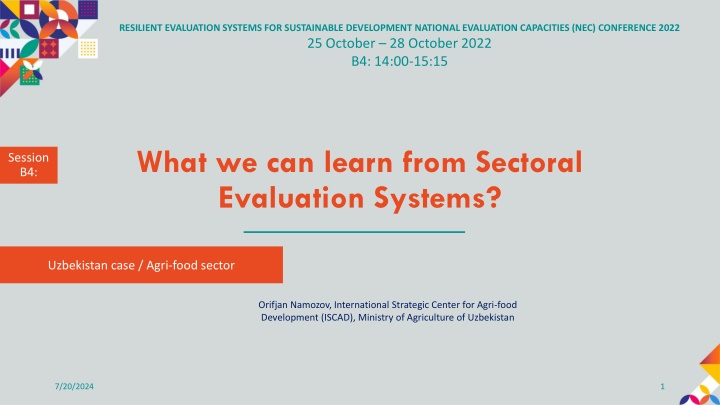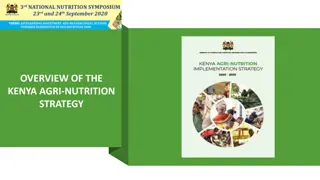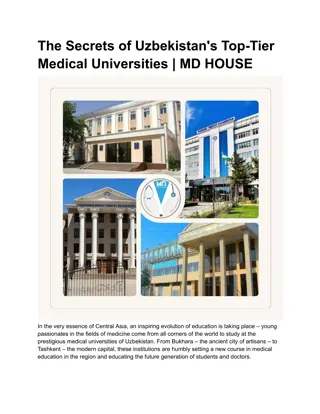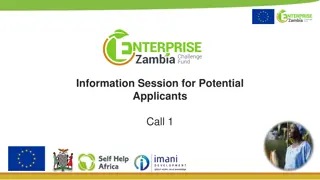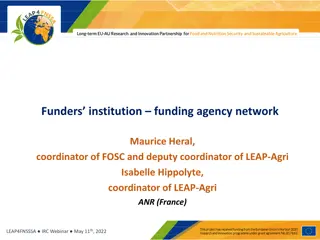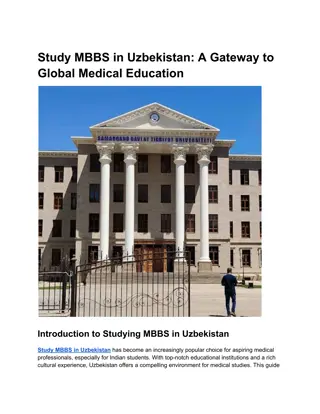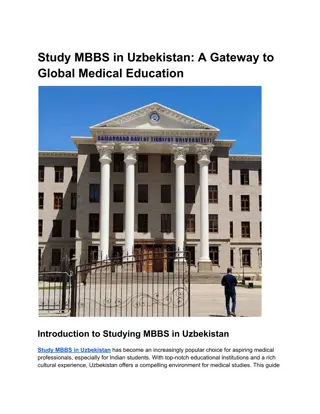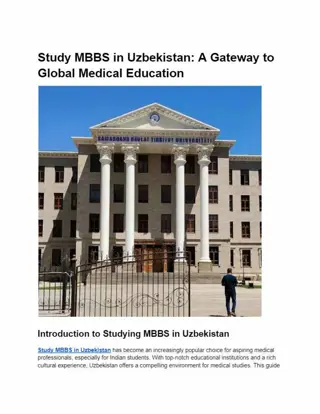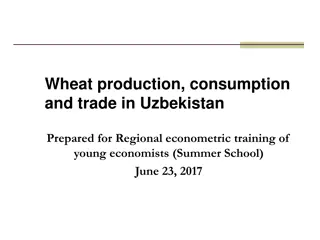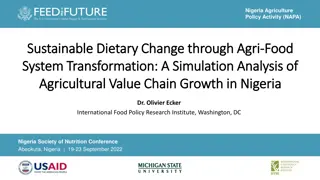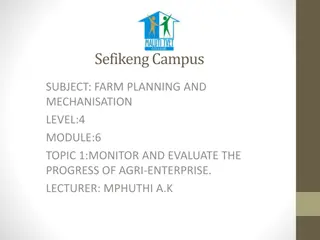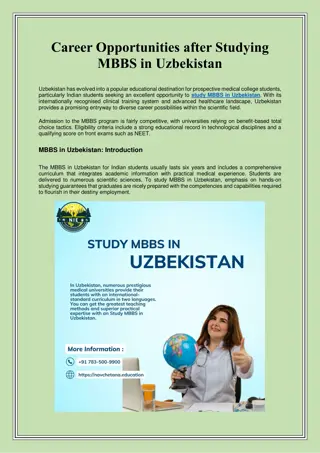Enhancing Evaluation Systems in Uzbekistan's Agri-food Sector for Sustainable Development
The agri-food sector in Uzbekistan faces various challenges such as food security, climate change, and market risks. The session explores the complexities influencing sector management and emphasizes the need for a coherent national strategic framework. It highlights the importance of planning and programming, as well as balancing nation-driven and donor-driven strategies to ensure effective evaluation systems. Additionally, the session discusses scaling up micro projects for broader impact.
Download Presentation

Please find below an Image/Link to download the presentation.
The content on the website is provided AS IS for your information and personal use only. It may not be sold, licensed, or shared on other websites without obtaining consent from the author.If you encounter any issues during the download, it is possible that the publisher has removed the file from their server.
You are allowed to download the files provided on this website for personal or commercial use, subject to the condition that they are used lawfully. All files are the property of their respective owners.
The content on the website is provided AS IS for your information and personal use only. It may not be sold, licensed, or shared on other websites without obtaining consent from the author.
E N D
Presentation Transcript
RESILIENT EVALUATION SYSTEMS FOR SUSTAINABLE DEVELOPMENT NATIONAL EVALUATION CAPACITIES (NEC) CONFERENCE 2022 25 October 28 October 2022 B4: 14:00-15:15 What we can learn from Sectoral Evaluation Systems? Session B4: Uzbekistan case / Agri-food sector Orifjan Namozov, International Strategic Center for Agri-food Development (ISCAD), Ministry of Agriculture of Uzbekistan 7/20/2024 1
1. Complexity of the agri-food sector influences management (data collection, sectoral coordination, planning, programming, implementation, M&E, policy analysis). So, this demands for matching SES Food security and nutrition Climate change Global turmoil Agriculture Dependence on wheat production and import Crowding out subsector of horticulture (vegetables, fruits, berries and grapes) Growing population Need for development clime-smart (climate resilient) agriculture Climate mitigation approach (low carbon challenge) Russian-Ukraine war COVID pandemics Emerging Value Chain with remarkable gaps (GAPs, inputs, machinery and equipment, basic off-farm processing, High market risks in farming business (price volatility) Lack of consistent (agriculture-inclusive) financial institutions and instruments (lending, insurance, leasing) Strategic Planning Conservation and biodiversity Need for balanced development Programming Global logistics Coordination & streamlining Uzbekistan is a doubly landlocked country PolicyAnalysis Water and energy Data & information management Project management Other systems Shortage with water resources for agriculture Inefficient use of water resources (loss in irrigation) High pumping costs of water delivery . Monitoring & Evaluation
2. Sectoral Evaluation System needs a NES and coherent National Strategic framework. System in the system. Downstream and upstream chains of NES Upstream Strategic Framework Subordinated Programs Subordinaated projects Downstream
3. Dependency of SES on planning and programming. Ex-ante evaluation of programs and projects Ex-ante evaluation Ex-post evaluation Important to evaluate in the strategizing / programming pahse Can be useless if national strategy, subordinated programs and projects designed weakly
5. Balancing nation-driven and / vs. donor-driven visons and strategies. Many donor efforts are based on own evaluation systems (ex ante and ex post). While a government face ownership issue
6. Scaling up micro projects (pilots) to regional and macro. Many small pilots are isolated and not integrated. Big systems do not change Pilot
7. Proper capacity building system is crucial. Modeling and roadmapping the establishing and developing of SES ? Research ? Training ? Knowledge sharing
8. Understanding of the Ecosystem of SES is essential to make SES effective Strategic Planning Framework Statistics and data management Capacity of public ministries and agents SES (agri-food sector) International standards Transparency and accountability Cooperation with international donors ?
